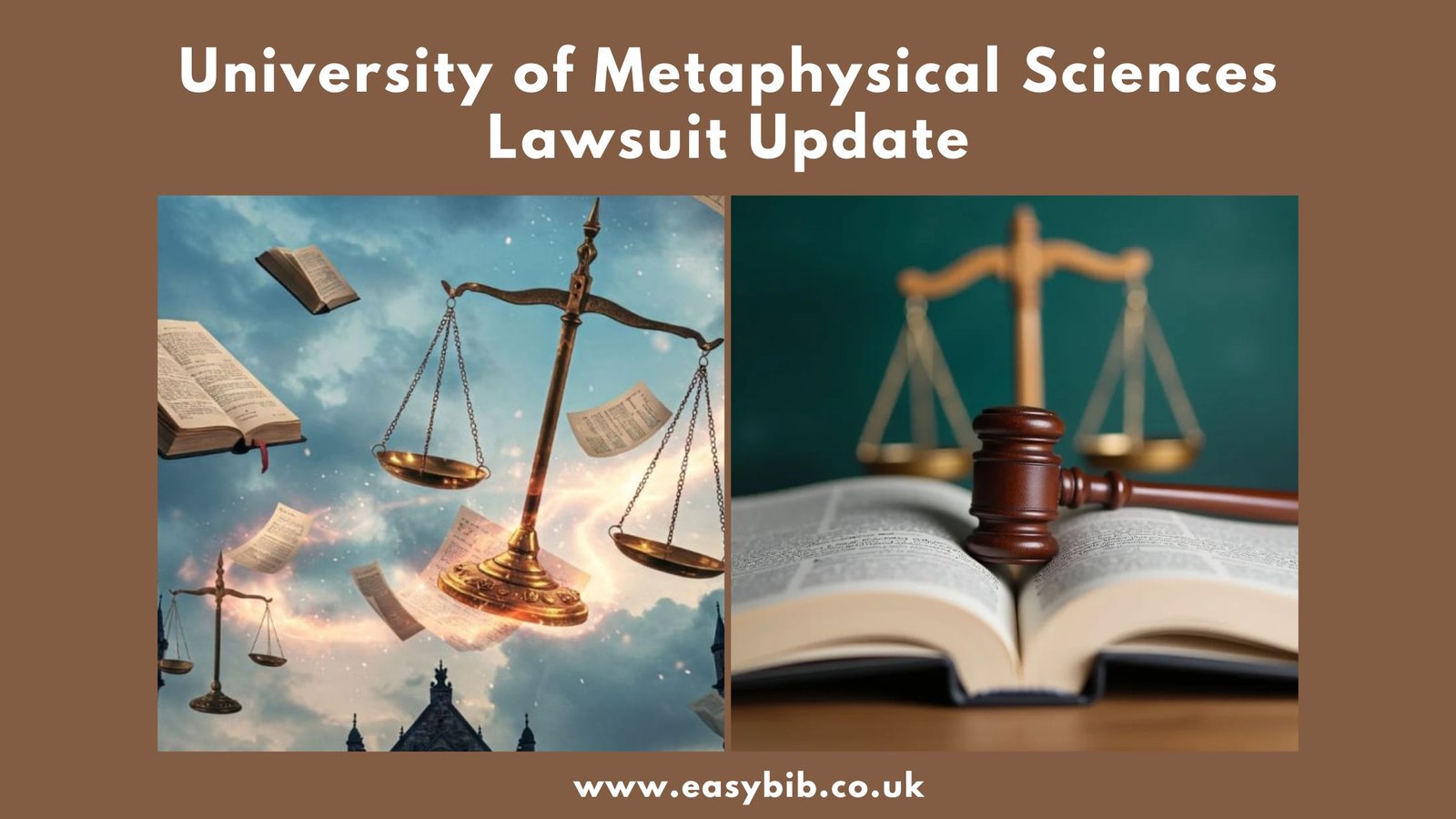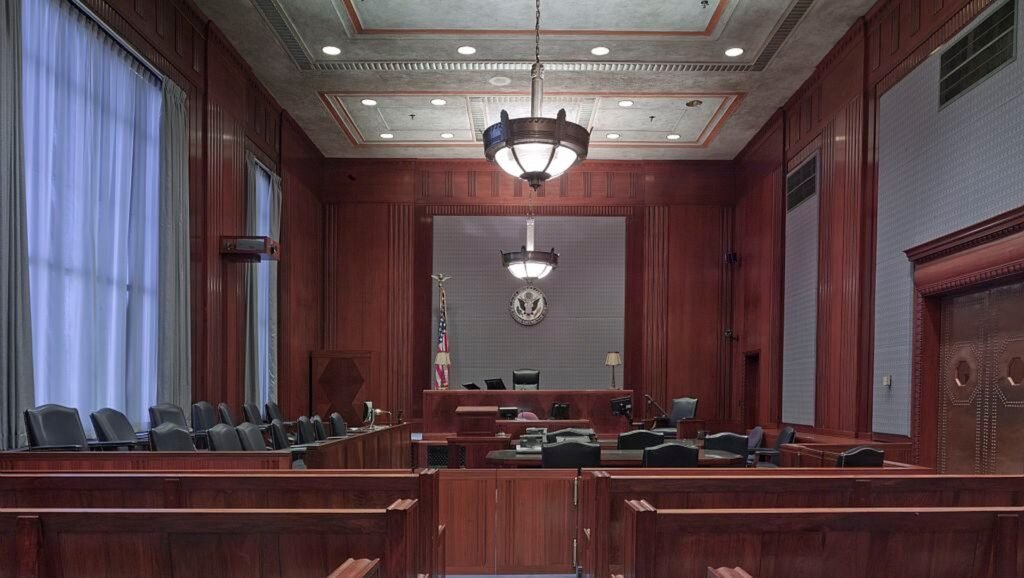University of Metaphysical Sciences Lawsuit Update

The long-running legal dispute involving the University of Metaphysical Sciences (UMS) has come to a formal end. On May 12, 2025, all parties involved in the lawsuit reached a settlement. The case was officially dismissed. This decision marked the conclusion of a legal process that had stretched across several years.
The university of Metaphysical Sciences lawsuit update centered around claims made by a business competitor. The competitor alleged that UMS had used deceptive advertising practices. Specifically, the issue involved the use of Google ads. It was claimed that UMS had run ads using the competitor’s school name. These allegations were denied by UMS throughout the legal process.
The university provided its own documentation to counter the claims. According to UMS, their AdWords reports showed no such activity. No legal finding of guilt or misconduct was ever made against UMS. The dismissal of the case means there will be no trial. The one previously scheduled for June 2025 was cancelled.
What the University of Metaphysical Sciences Lawsuit Update Was About?
The central complaint was focused on search engine advertising. The competitor claimed that UMS was targeting their school’s name in Google ads. This type of marketing tactic, known as competitive keyword advertising, is legal in many cases. However, it can lead to legal challenges depending on intent and impact.
UMS argued that it had done nothing wrong. It presented internal records to back its position. These included digital marketing reports and billing records. The university stated that it never purchased ads using the competitor’s brand.
There were no accusations related to UMS students, faculty, or tuition issues. It was not about accreditation or academic fraud. No regulatory body was involved in the case. The dispute stayed between private parties. It was more about business competition than education quality or ethics.
Timeline of Events
The legal conflict between UMS and the competitor started in 2017. At that time, the competitor filed the first lawsuit. The claims were similar to those made later. However, that case ended with no major result. In fact, all cases filed since then have either been withdrawn or dismissed.
In 2021, a second lawsuit was filed. This one tried to prevent UMS from running any online ads at all. It also tried to shut down parts of their website. That case lasted only a few months. It was dropped before reaching any court decision.
A third and final lawsuit began in 2022. This case was more aggressive and detailed. It went into federal court in Northern California. Both sides prepared for a full trial. Over time, however, many of the competitor’s claims were weakened. Some trademark-related claims were dismissed by the judge.
UMS claimed that some of the competitor’s evidence was invalid. They also said one trademark renewal appeared to be forged. Others had expired and were not active anymore. These losses reduced the strength of the case overall.
Allegations of Online Smear Campaign
UMS also accused the competitor of running a smear campaign online. According to their public statements, the university says over 600 fake articles were published to damage its image. These articles appeared on low-quality websites and content farms. Many contained false claims about the lawsuit.

The school also believes that Google search suggestions were manipulated. For example, search terms like “UMS Sedona Arizona lawsuit” began appearing frequently. However, UMS has never operated in Sedona, Arizona. They suspect that fake content and bots were used to push these results.
According to UMS, this is part of a larger attack. They say the goal was to hurt their public image and SEO rankings. Some of the articles may have been AI-generated. UMS advises students and researchers to only trust official updates from their website or verified sources.
Dismissal and Final Decision
On May 12, 2025, the case officially closed. Both parties agreed to drop their claims. There was no settlement payment or public apology required. The case simply ended. Each side would cover its own legal fees and move on.
For UMS, this was a victory in terms of avoiding further court battles. While it was not a win in the technical legal sense, it was a clean resolution. The university never admitted wrongdoing. There was never a guilty verdict or court order against them.
They now plan to focus on repairing their digital reputation. One step they are taking is preparing a legal motion to remove defamatory online content. This is known as a John Doe petition. It can force platforms to take down harmful or fake materials. Google and other platforms may be included in this petition.
What It Means for UMS
UMS continues to offer online spiritual education. Their degrees and programs remain active. They are registered as a religious institution and operate under spiritual accreditation laws. These laws are different from traditional academic systems. UMS makes this clear to all applicants and students.
The university says it never lost a case in court. It also claims it has been the target of multiple attacks over the years. These included lawsuits, SEO spam, and misinformation. Despite these challenges, UMS has kept operating. Their enrollment has continued, and they plan to expand some of their programs.
Final Thoughts
The University of Metaphysical Sciences has now moved beyond a long period of legal pressure. No judgment was made against them. No official finding of guilt or misconduct exists. The dismissal of the case allows the school to shift its energy elsewhere.
This legal battle highlights how digital attacks can combine with lawsuits to pressure online businesses. It also shows how the legal system sometimes ends not with a verdict but with mutual dismissal. That’s what happened here.
UMS plans to restore its online presence and continue its mission. The case is closed. The university has survived it. Now it focuses on healing its reputation and serving its community.
